NFPA Certificated Marine Chemists – A Century of Fire Protection and Life Safety
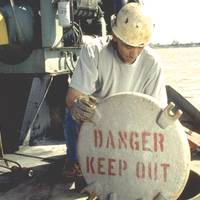
As the National Fire Protection Association (NFPA) Technical Committee on Gas Hazards votes on the First Draft of the next edition of NFPA 306, Standard for the Control of Gas Hazards on Vessels, the NFPA Certificated Marine Chemist Program will mark 100 years of fire protection and life safety on marine vessels, in shipyards, marine terminals and waterfront facilities.What started a century ago as an industry effort to prevent fires on vessels under repair has never been more important. According to a 2007 report of the U.S.
Revised PREP Guidelines: What You Should Know

On April 11, 2016 the U.S. Coast Guard (USCG) released the revised 2016 National Preparedness for Response Exercise Program (PREP) Guidelines. The new guidelines will become effective on June 10, 2016. Established under the Oil Pollution Act of 1990, the PREP guidelines were developed to provide a mechanism for compliance with the vessel response plan (VRP) drill and exercise requirements. Use of the PREP Guidelines is voluntary, however, compliance with the PREP guidelines will satisfy these requirements.
MPC Honors Crowley for Tank Vessel Safety
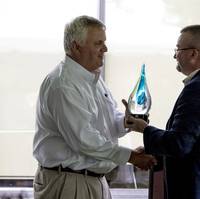
Crowley Maritime Corporation’s petroleum services division has once again been honored by Marathon Petroleum Company (MPC) with its annual Elite Vessel Award, which is given to tank vessel operators who demonstrate commitment to safety, environmental stewardship and operational excellence. To earn the recognition, the five Crowley ATBs chartered by MPC – including the Courage/650-5; Achievement/650-8;Legacy/750-1; Legend/750-2; and Liberty/750-3 – had to meet a series of standards…
Crowley Petroleum to Receive ECOPRO Award from WA State
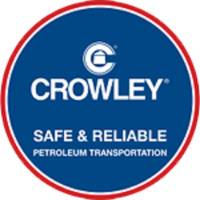
Crowley Petroleum Services will be awarded the Exceptional Compliance Program (ECOPRO) award for excellence in marine safety and environmental stewardship from the Washington Department of Ecology this Thursday at Odyssey Maritime Discovery Center in Seattle. Companies that apply for the ECOPRO certification are required to submit plans to the Washington Department of Ecology for approval. Their plans are valid for three years. Ecology vessel inspectors conduct ship audits to make sure the management system is being implemented and continues to meet or exceed state ECOPRO standards.
Spill Response Discussion with SCAA President Scott Metzger
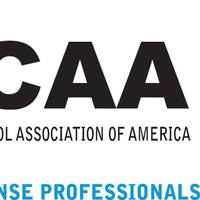
Scott Metzger has been with Clean Harbors Environmental Services for more than 22 years. He is the Senior Vice President, Emergency Services and holds an oversight role for the Clean Harbors National Strike Team that manages environmental incidents. When not deployed on an event, Scott is focused on ER preparedness, readiness, training and the strategic development of response teams. And now, as the President of the Spill Control Association of America (SCAA), he’s got even more on his plate. Couple this with the advent of the U.S.
A Regulatory Seascape

Regulation shapes the workboat industry perhaps more than any other single factor. This regulatory seascape includes a myriad of onerous and ever-changing rules. A ‘SITREP’ on those choppy waters is therefore in order. Last December, the Coast Guard closed the public comment period following its Notice of Proposed Rulemaking (NPRM) requiring nearly all towing vessels to obtain Certificates of Inspection under Subchapter M of CFR 46. The Coast Guard’s Towing Vessel National Center of Expertise (NCE) estimates that there are 5,800 U.S.
Resolve, T&T Bisso Form FiFi Coalition
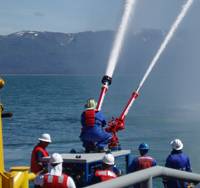
Resolve Marine Group and T&T Bisso have announced their coalition for Marine Firefighting services in U.S. waters. This agreement combines both companies’ extensive firefighting infrastructure to produce overlapping coverage and higher volume firefighting capacity throughout the U.S. This coalition was crafted specifically to help tank vessel operators fully comply with the new Oil Pollution Act of 1990 regulations that will be effective on February 22, 2011. The regulations require that all tanker and tank barge owners operating in U.S.
Polar Tankers Receives Ecology Award
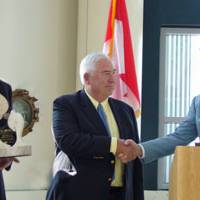
Representatives from Washington Department of Ecology and the oil tank vessel industry met in Seattle on July 29 to award Polar Tankers with Ecology’s Exceptional Compliance Program (ECOPRO) Award. The award was given to the subsidiary of ConocoPhillips Co. for achieving excellence in marine safety and environmental stewardship. Polar Tankers operates U.S.-flagged crude oil tankers on the West Coast including Washington, Oregon, California, Alaska, Hawaii and Canada. Its five modern, Endeavour Class tankers are specifically designed to carry crude oil in an environmentally safe manner.
Coast Guard Requires TLPM Devices
The Coast Guard has published a final rule that would require tank level or pressure monitoring (TLPM) devices to be installed on single-hull tank barges and tank ships five years, despite the agency's acknowledgement that devices capable of meeting the requirements are not within the bounds of existing technology. 2000 appeals court decision as requiring the agency to mandate their use. AWO and a coalition of domestic and international tank vessel operators are seeking a legislative change that would clarify the agency's responsibility under the Oil Pollution Act of 1990 (OPA 90) and give the Coast Guard the flexibility not to require devices that are not technologically or economically feasible.
Washington State Issues Fine to Tanker Company
Alaska Tanker Company was fined $25,000 by the state for allowing an estimated 462 gallons of crude oil to spill from the tanker, Prince William Sound, into Port Angeles harbor. The spill partly stained two miles of beach inside Ediz Hook. The state Department of Ecology's investigation found that the tanker's crew allowed a deck-drain system to fail because there was no check valve in place to prevent it from overflowing in Port Angeles Harbor on a journey from Valdez, Alaska, to Cherry Point. It was carrying a full load of Alaska North Slope crude oil. "The shipping company cooperated fully with the emergency spill response, but nonetheless, the spill was preventable and jeopardized a valuable marine environment," said Dale Jensen, manager of Ecology's spill prevention program.












